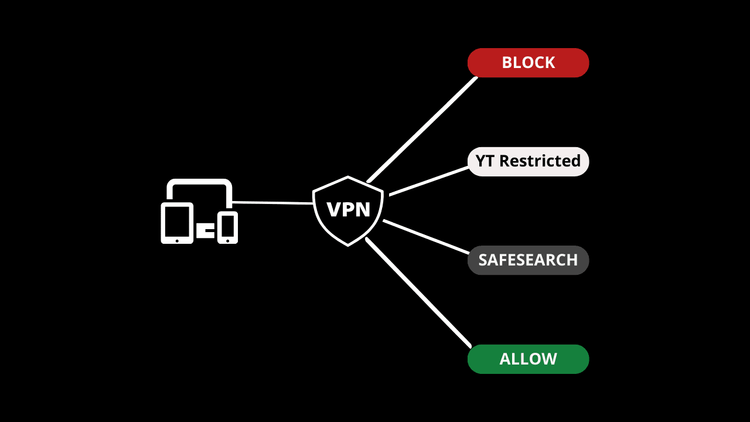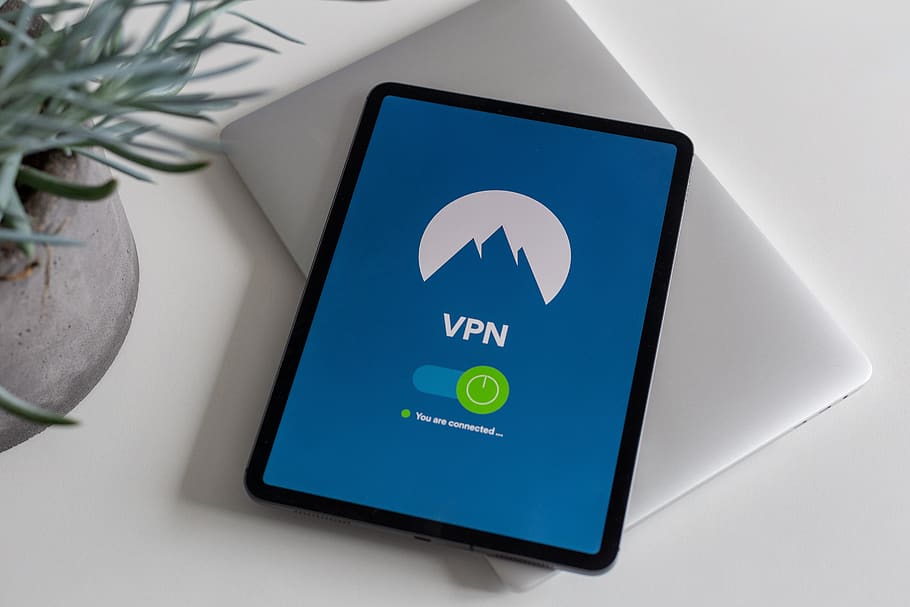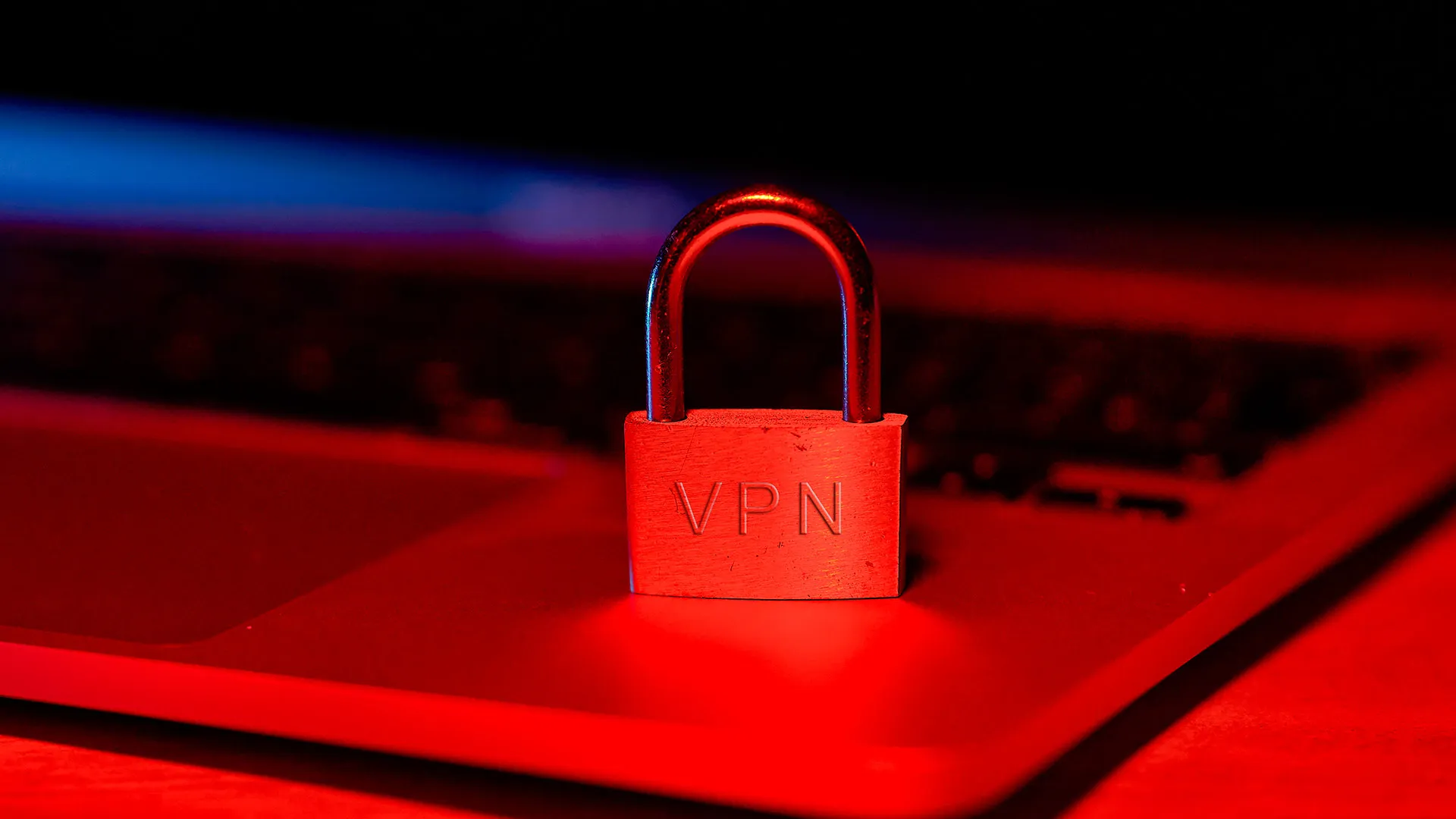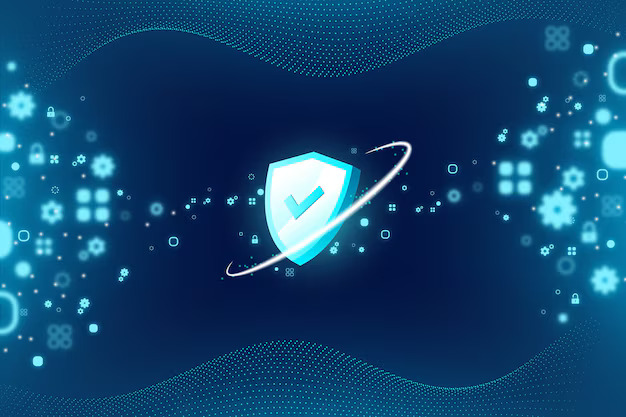In today’s digital world, protecting your online privacy is more important than ever, and using a free VPN is a great way to do so without breaking the bank. A VPN, or Virtual Private Network, not only helps you secure your internet connection but also allows you to bypass geo-restrictions and surf the web more freely. But not all free VPNs are created equal, and some can slow down your connection or even compromise your security. In this article, we’ll introduce you to 7 free VPN services that are both safe and offer fast connections.
What is a VPN, and Why Should You Use One?
A VPN (Virtual Private Network) is a tool that helps you stay secure and private when browsing the internet. It creates a secure, encrypted connection between your device (like your phone, laptop, or tablet) and a remote server. By doing this, a VPN hides your real IP address and encrypts your data, making it much harder for anyone to track what you’re doing online.

Why should you use a VPN?
- Online Privacy
Your online activities can be tracked by websites, advertisers, or even your ISP (Internet Service Provider). A VPN helps mask your IP address and encrypts your data to keep it private. - Bypass Geo-Restrictions
Want to watch shows on Netflix that are only available in the US or another country? A VPN allows you to change your virtual location and access geo-blocked content. - Security on Public Wi-Fi
Public Wi-Fi networks are often unprotected, making it easy for hackers to access your data. A VPN keeps your connection secure and encrypted, even on unsecured networks. - Protect Your Privacy
VPNs keep your online activity hidden from prying eyes, like internet service providers (ISPs), hackers, and even websites you visit. - Secure Your Data
When you’re using public Wi-Fi, like at a café or airport, a VPN can help protect your data from being intercepted by hackers. - Access Blocked Content
A VPN allows you to bypass geo-restrictions, so you can access websites, streaming platforms, or services that may be blocked or unavailable in your region. - Stay Anonymous
It’s harder for websites and third parties to track your browsing habits when you’re using a VPN because your real IP address is hidden.
Simply put, a VPN makes your online experience safer and more private.
How Does a VPN Work?
When you connect to a VPN, your internet traffic is rerouted through one of the VPN’s servers, which can be located anywhere in the world. This process does two key things:
- Encrypts Your Data: This means all your browsing activity, messages, and downloads are scrambled, making it nearly impossible for anyone to see what you’re doing online.
- Hides Your IP Address: Instead of using your real IP address (which can reveal your location), the VPN assigns you an IP address from the server you’re connected to. This makes it look like you’re browsing from another country, providing you with an extra layer of privacy.
Is Using Free VPN Services Safe?
With the growing need for online privacy and security, many people are turning to VPNs (Virtual Private Networks) to protect their data, bypass geo-restrictions, and browse the internet anonymously. While paid VPNs come with loads of features and a promise of better protection, free VPNs often seem like a tempting option. After all, who doesn’t love free stuff? But the big question is: Is using a free VPN actually safe?
Let’s dive into what free VPNs offer, their potential risks, and whether or not they’re worth it.
Pros of Free VPN
- No Cost
The biggest advantage is that they don’t cost anything upfront. If you’re just trying to get past a basic geo-block for something like streaming a video, a free VPN might do the trick. - Easy to Use
Most free VPNs are pretty straightforward to set up and use. You download the app, connect, and you’re good to go.
Cons of Free VPN
- Data Logging and Selling
Many free VPNs make money by collecting your data and selling it to advertisers or third parties. This completely defeats the purpose of using a VPN in the first place, as your privacy is being compromised. - Limited Security
Free VPNs often use weaker encryption, making your connection vulnerable to hackers or data leaks. Without strong security, your data could still be at risk, especially on public Wi-Fi networks. - Annoying Ads and Pop-ups
To make a profit, free VPNs often bombard you with ads or force you to deal with constant pop-ups. Some of these ads may even carry malware, putting your device at risk. - Slow Speeds and Bandwidth Caps
Free VPNs typically offer fewer servers, which can get overcrowded. This leads to slow connection speeds and limited bandwidth. If you’re trying to stream or download large files, this can be frustrating. - Limited Server Locations
Many free VPNs offer only a handful of servers to choose from, meaning you might not be able to access content from certain regions. Paid VPNs typically offer servers all around the world, giving you more flexibility. - Potential Malware Risks
Some free VPN apps have been found to contain malware. Since you’re not paying for the service, these providers may cut corners on security or even include harmful software in their apps.

Are There Any Safe Free VPN ?
While many free VPNs come with risks, there are a few that offer decent services without compromising your privacy too much. However, even the best free VPNs usually have limitations, such as restricted data usage or slower speeds.
ProtonVPN
ProtonVPN is well-known for its commitment to privacy. The free version offers unlimited data, which is rare for free VPNs, but it only provides access to servers in three countries.
Pros:
- Unlimited data.
- No-logs policy ensures privacy.
- Excellent security features.
Cons:
- Limited server locations (US, Japan, Netherlands).
- Speeds can be slow during peak hours.
Windscribe
Windscribe offers one of the most generous data allowances among free VPNs, with 10GB of data per month. It’s also known for decent speeds and access to servers in 10 countries.
Pros:
- 10GB free data monthly.
- Servers in 10 countries.
- No-logs policy.
Cons:
- Data cap may limit heavy usage.
- Slower speeds on crowded servers.
TunnelBear
TunnelBear is a free VPN with an extremely user-friendly interface, making it perfect for beginners. However, the 500MB monthly data cap can be restrictive if you’re looking for extended usage.
Pros:
- Easy to use, especially for beginners.
- Servers in over 20 countries.
- Strong encryption for secure browsing.
Cons:
- 500MB monthly data cap.
- Slower speeds on some servers.
Hotspot Shield
Hotspot Shield is a popular choice because it offers fast speeds, even on its free plan. However, the daily 500MB data limit and being restricted to one server location (US) can be limiting.
Pros:
- Fast speeds even on free plan.
- Reliable and easy-to-use interface.
- 500MB daily data.
Cons:
- Limited to one server location (US).
- Data cap may be too low for streaming.
Hide.me
Hide.me is a great free VPN if you’re looking for security and privacy. It offers 10GB of data per month and access to five server locations, making it a solid option for casual users.
Pros:
- 10GB of free data per month.
- No-logs policy.
- No need for an account to use the service.
Cons:
- Limited to five server locations.
- Speeds may fluctuate during high traffic.
PrivadoVPN
PrivadoVPN is a newer service but offers a strong free plan with 10GB of data per month and servers in several countries. It’s also known for its no-logs policy, which ensures user privacy.
Pros:
- 10GB monthly data allowance.
- No-logs policy.
- Strong encryption and security features.
Cons:
- Limited server options for free users.
- Data limit may restrict streaming or downloading.
Opera VPN
Opera VPN is built directly into the Opera web browser, and it’s entirely free to use. However, it only works within the browser itself and has fewer server locations compared to other VPNs on this list.
Pros:
- No data limits.
- Built into the Opera browser.
- Simple and easy to use.
Cons:
- Only works within the Opera browser.
- Fewer server locations compared to dedicated VPNs.
Which Countries Restrict Internet Access?
internet access has become a fundamental part of daily life, allowing people to connect, learn, and share information across the globe. However, not everyone enjoys the same level of freedom online. Some countries impose strict regulations on internet use, limiting what citizens can access or even cutting off the internet entirely during certain periods. Let’s dive into the countries that restrict internet access and explore the reasons behind these limitations.
China
When it comes to internet censorship, China is probably the most well-known. The country has created a heavily controlled digital environment often referred to as the “Great Firewall of China.” Popular websites and platforms like Google, Facebook, Twitter, and YouTube are blocked. The government also closely monitors domestic platforms like WeChat and Weibo, censoring content deemed politically sensitive or critical of the state.
- Why? The Chinese government restricts internet use to maintain control over information and to prevent political dissent or unrest.
- How? Through strict laws, heavy monitoring, and sophisticated filtering technology.
North Korea
North Korea takes internet restrictions to a whole new level. The vast majority of North Koreans do not have access to the global internet at all. Instead, they are limited to a state-controlled intranet called Kwangmyong, which only includes government-approved websites. Access to international content is available only to a select group of elites or foreign workers, and even they are heavily monitored.
- Why? The regime seeks to isolate its citizens from outside influences and maintain strict control over the flow of information.
- How? Complete control by the state, with access to the global internet practically nonexistent for most citizens.
Iran
Iran also has significant internet restrictions, especially when it comes to social media and news websites. Platforms like Facebook, Twitter, and YouTube are blocked, and many international news outlets are inaccessible. Iran has even discussed creating its own national intranet to further isolate Iranian internet users from the global web.
- Why? To limit the spread of information that could spark political dissent, control access to Western content, and enforce conservative cultural norms.
- How? Through government-controlled filtering, site blocking, and monitoring of online activities.
Saudi Arabia
In Saudi Arabia, internet censorship is largely focused on controlling social, political, and religious content. Websites that discuss or promote liberal values, LGBTQ+ rights, and political reform are often blocked. The government also censors content deemed morally inappropriate, such as adult material and gambling sites.
- Why? To uphold conservative Islamic values and prevent the spread of content that could challenge the political status quo.
- How? By filtering websites and monitoring internet use through strict cybercrime laws.
Russia
In recent years, Russia has increased its internet censorship efforts. While platforms like Google and Facebook are accessible, the government has cracked down on social media posts and websites that promote political opposition or criticize the government. Russia also passed a law requiring all internet traffic to be routed through government-controlled servers, giving authorities more control over the content that citizens can access.
- Why? To prevent dissent, maintain political control, and limit foreign influence on Russian citizens.
- How? By regulating internet providers, requiring data storage on local servers, and using surveillance tactics.
Turkey
Turkey has tightened its grip on the internet in recent years, particularly in response to political unrest. The government frequently blocks access to social media sites like Twitter, Facebook, and Instagram, especially during times of protests or political turmoil. Journalistic websites and news outlets critical of the government are also often targeted.
- Why? To suppress political dissent and maintain control over the narrative during times of unrest.
- How? By using temporary bans, censorship laws, and heavy fines for non-compliance.
Vietnam
Vietnam has a somewhat complicated relationship with the internet. While many websites are accessible, the government tightly controls online content that is deemed harmful to the state or critical of the Communist Party. Social media platforms like Facebook are used widely, but users are monitored, and those posting politically sensitive content can face harassment or arrest.
- Why? To maintain the one-party rule and suppress any opposition or dissent.
- How? Through strict internet laws and monitoring social media activity.
United Arab Emirates (UAE)
The UAE has a strong economy and is known for being tech-savvy, but it still has strict internet regulations. Websites that conflict with Islamic values, such as those promoting gambling, adult content, or LGBTQ+ rights, are blocked. VoIP services like Skype and WhatsApp calling are also restricted, likely due to the government’s desire to protect state-run telecom companies.
- Why? To preserve cultural and religious values, as well as to maintain control over telecommunications.
- How? By filtering content and regulating internet service providers.
Eritrea
Eritrea is one of the most isolated countries in the world, and its government has tight control over all forms of media, including the internet. Only a small percentage of the population has access to the web, and those who do are monitored closely. Independent news websites are blocked, and social media use is limited.
- Why? To maintain the government’s authoritarian rule and prevent the spread of information that could challenge it.
- How? By restricting internet access to a select few and controlling the flow of information.
Why Do Countries Restrict Internet Access?
Countries that restrict internet access often do so to maintain political control, enforce cultural or religious norms, and prevent the spread of content that could lead to social unrest. While the internet is a powerful tool for freedom of expression and global connection, these governments view it as a potential threat to their authority.
Is Restricted Internet Access Justified?
This is a subjective question. Some argue that governments have the right to control internet use to protect their cultural values and maintain security. Others believe that restricting internet access infringes on basic human rights, such as freedom of speech and the right to information. Ultimately, it depends on the balance between security and freedom, and how each country views the role of the internet in society.

Which Countries Ban VPN Usage?
Using a VPN (Virtual Private Network) has become a popular way for people to protect their privacy online, access blocked websites, and maintain security, especially when using public Wi-Fi. However, not all governments are on board with this. Some countries actually ban or restrict VPN usage because they see it as a tool that could undermine their control over the internet. In this article, we’ll look at which countries ban VPNs and why they do so.
China
China is famous for its strict control over the internet, also known as the “Great Firewall of China.” The government tightly regulates internet use, blocking access to sites like Google, Facebook, Twitter, and YouTube. As a result, many people use VPNs to get around these restrictions. However, using unapproved VPNs in China is illegal. The government has cracked down on VPN usage, and only government-approved VPN services are allowed.
- Why banned? To maintain control over the flow of information and block access to foreign content.
- Can I still use it? Only government-approved VPNs are legal, but many people still use unapproved VPNs at their own risk.
North Korea
North Korea is one of the most isolated countries in the world, and access to the global internet is nearly nonexistent for its citizens. VPNs are not only banned, but most North Koreans don’t have access to the internet to begin with. The government closely controls all communications, and using a VPN would be seen as a serious offense.
- Why banned? To prevent citizens from accessing foreign information and maintain total government control.
- Can I still use it? No. Only government officials and certain elites have internet access, and they are heavily monitored.
Iran
Iran also has strict control over the internet, and VPNs are banned unless they are government-approved. The Iranian government blocks many social media platforms, news outlets, and websites that promote Western culture or political dissent. People use VPNs to bypass these restrictions, but using unauthorized VPNs is illegal.
- Why banned? To control access to Western content, political information, and prevent anti-government messaging.
- Can I still use it? Only government-approved VPNs are legal, and using unapproved ones can result in fines or imprisonment.
United Arab Emirates (UAE)
In the UAE, using VPNs is legal, but only for lawful purposes. The government has banned the use of VPNs for accessing illegal content or services that go against the country’s laws, such as VoIP services like WhatsApp calls or Skype, which are blocked to protect the revenues of local telecom providers.
- Why banned? To maintain control over telecommunications and prevent access to restricted content.
- Can I still use it? You can use VPNs legally for browsing or business purposes, but using them to access blocked services like VoIP is illegal and can result in fines.
Russia
Russia has increased its control over the internet in recent years, passing laws that ban VPNs unless they are registered with the government. The Russian government wants to prevent citizens from accessing websites and content that are banned for political or social reasons, including sites that criticize the government or promote political opposition.
- Why banned? To prevent access to political dissent and control the narrative within the country.
- Can I still use it? Only government-approved VPNs are legal, and the use of others can lead to penalties.
Turkmenistan
Turkmenistan is one of the most isolated countries in terms of internet access. The government controls all internet services, and VPNs are strictly banned. The country already has very limited access to the internet, and using a VPN to bypass restrictions is a serious offense.
- Why banned? To prevent citizens from accessing any information that challenges the government’s control.
- Can I still use it? No. VPNs are banned, and even discussing ways to bypass internet restrictions can lead to punishment.
Belarus
Belarus has a history of restricting access to the internet, particularly during periods of political unrest. The government has banned VPNs and other anonymizing services to prevent citizens from accessing opposition websites and organizing protests online.
- Why banned? To suppress political opposition and control the flow of information.
- Can I still use it? VPNs are officially banned, but some people still use them to access blocked content at their own risk.
Oman
In Oman, VPNs are only legal for companies and institutions that have received special permission from the government. Individuals are not allowed to use VPNs to access blocked services or content, such as VoIP services. The government closely monitors internet activity and enforces restrictions on what can be accessed.
- Why banned? To control access to restricted services and maintain cultural and political control.
- Can I still use it? VPNs are illegal for personal use, and using them to bypass restrictions can result in fines.
Iraq
In Iraq, VPNs have been banned in the past during times of political unrest to prevent protestors from organizing online. The government also restricts access to social media platforms and websites during these periods, and VPNs are often targeted to maintain control.
- Why banned? To limit online communication during political crises and control protest movements.
- Can I still use it? VPN usage is banned during times of political unrest, and using one can lead to penalties.
Why Do Countries Ban VPNs?
Countries that ban VPNs typically do so because they want to maintain control over the flow of information and prevent their citizens from accessing content that could challenge the government or promote opposition. VPNs allow users to bypass censorship and access blocked content, which can threaten the government’s ability to control public opinion and maintain power.
In some cases, VPNs are also banned to protect the profits of local telecom companies, as seen in countries like the UAE, where VoIP services are restricted to maintain control over telecommunications.
FAQs About Free VPNs
- Are free VPNs safe to use?
Free VPNs can be safe, but it’s important to choose one with a strong privacy policy, like those mentioned above. Avoid free VPNs that log your data or display ads aggressively. - Can I use a free VPN for streaming?
Yes, but free VPNs usually have data limits, so you might not be able to stream large amounts of content. Also, some streaming platforms block free VPNs. - Do free VPNs slow down my internet speed?
Free VPNs often have slower speeds than paid ones because of limited server resources and user congestion. However, some options like Hotspot Shield are known for maintaining decent speeds. - What are the risks of using a free VPN?
Some free VPNs may log your data or show intrusive ads. It’s crucial to use a VPN with a no-logs policy and strong privacy practices to avoid these risks. - Is a free VPN enough for secure browsing?
For casual browsing, a free VPN can offer sufficient security. However, for more intensive online activities like banking or handling sensitive data, a paid VPN with enhanced features might be a better option. - Can a free VPN help me avoid geo-restrictions?
Yes, but free VPNs typically have fewer server locations, making it harder to access some geo-blocked content. Paid VPNs usually have a larger variety of servers for this purpose. - Do free VPNs work on all devices?
Most free VPNs work on popular devices like Windows, macOS, Android, and iOS. However, some limitations may apply, such as restrictions on the number of devices you can connect at once.
Conclusion
When it comes to choosing a free VPN, it’s essential to understand that while these services can offer security and privacy, they often come with limitations like data caps or fewer server options. Depending on your needs, ProtonVPN is great for unlimited data, while Hotspot Shield offers the fastest speeds. If you’re new to VPNs, TunnelBear might be your best bet for simplicity.
If you find the limitations of free services restrictive, consider upgrading to a paid VPN for more robust features, speed, and server availability.













